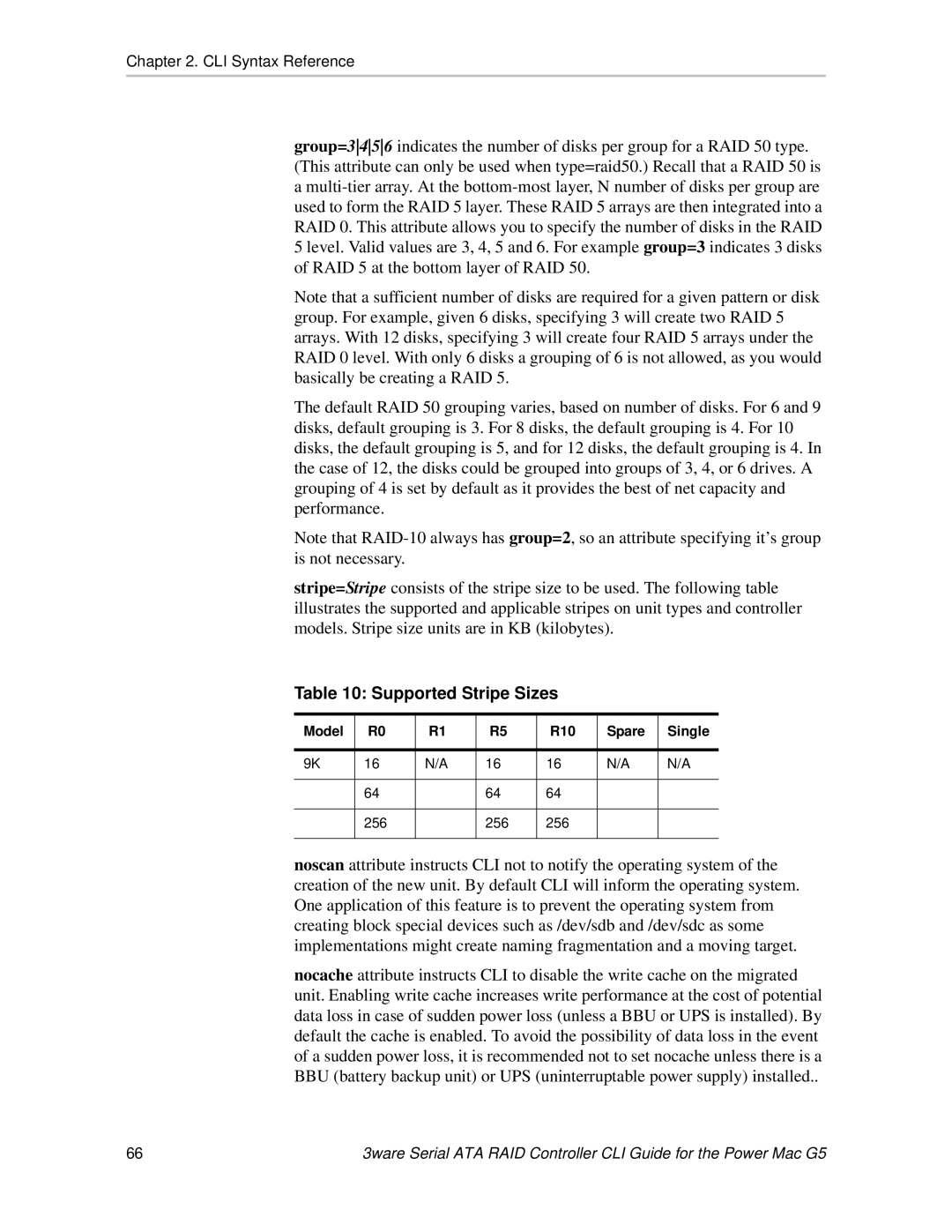Chapter 2. CLI Syntax Reference
group=3456 indicates the number of disks per group for a RAID 50 type. (This attribute can only be used when type=raid50.) Recall that a RAID 50 is
a
Note that a sufficient number of disks are required for a given pattern or disk group. For example, given 6 disks, specifying 3 will create two RAID 5 arrays. With 12 disks, specifying 3 will create four RAID 5 arrays under the RAID 0 level. With only 6 disks a grouping of 6 is not allowed, as you would basically be creating a RAID 5.
The default RAID 50 grouping varies, based on number of disks. For 6 and 9 disks, default grouping is 3. For 8 disks, the default grouping is 4. For 10 disks, the default grouping is 5, and for 12 disks, the default grouping is 4. In the case of 12, the disks could be grouped into groups of 3, 4, or 6 drives. A grouping of 4 is set by default as it provides the best of net capacity and performance.
Note that
stripe=Stripe consists of the stripe size to be used. The following table illustrates the supported and applicable stripes on unit types and controller models. Stripe size units are in KB (kilobytes).
Table 10: Supported Stripe Sizes
Model | R0 | R1 | R5 | R10 | Spare | Single |
|
|
|
|
|
|
|
9K | 16 | N/A | 16 | 16 | N/A | N/A |
|
|
|
|
|
|
|
| 64 |
| 64 | 64 |
|
|
|
|
|
|
|
|
|
| 256 |
| 256 | 256 |
|
|
|
|
|
|
|
|
|
noscan attribute instructs CLI not to notify the operating system of the creation of the new unit. By default CLI will inform the operating system. One application of this feature is to prevent the operating system from creating block special devices such as /dev/sdb and /dev/sdc as some implementations might create naming fragmentation and a moving target.
nocache attribute instructs CLI to disable the write cache on the migrated unit. Enabling write cache increases write performance at the cost of potential data loss in case of sudden power loss (unless a BBU or UPS is installed). By default the cache is enabled. To avoid the possibility of data loss in the event of a sudden power loss, it is recommended not to set nocache unless there is a BBU (battery backup unit) or UPS (uninterruptable power supply) installed..
66 | 3ware Serial ATA RAID Controller CLI Guide for the Power Mac G5 |
